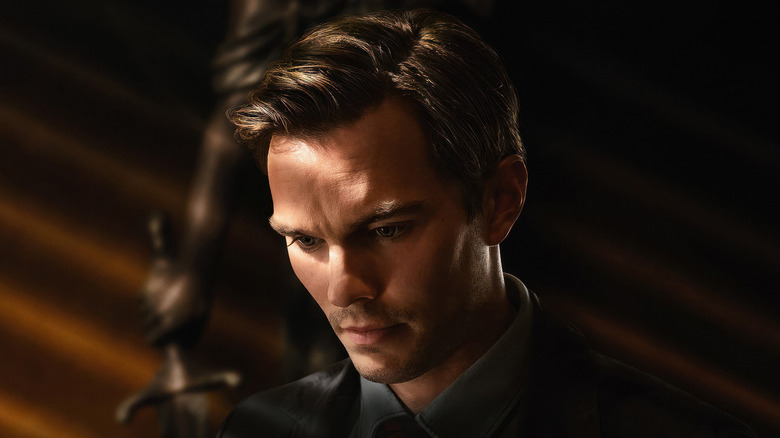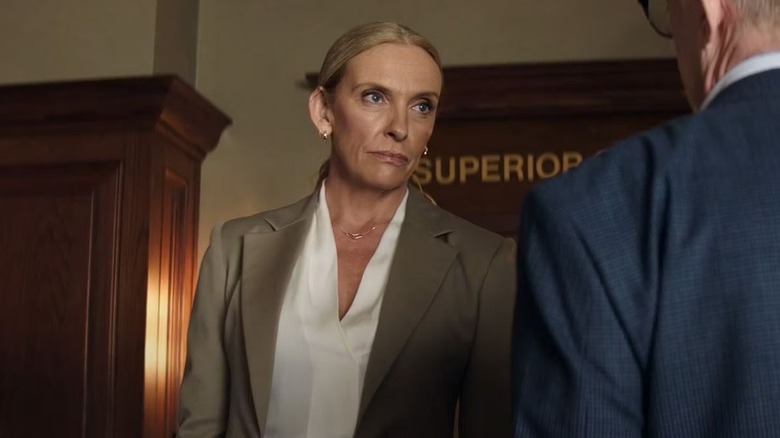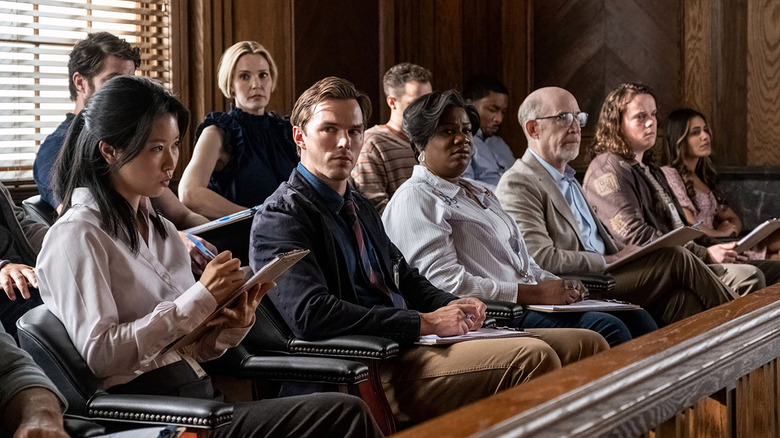Juror #2 Review: Clint Eastwood's New Legal Thriller Impresses
- Clint Eastwood hasn’t lost a step behind the camera
- A fine ensemble
- The second act struggles a bit between its focus on the protagonist and the larger picture
- Feels inconsistent thematically
At age 94, legendary movie star turned beloved filmmaker Clint Eastwood might not have many feature films left in him. His latest film "Juror #2," a prestige legal thriller with pulp leanings, is set to play a limited theatrical run — but not the kind of slow rollout employed by studios shepherding their fall and winter fare through the awards season campaign queue. It's going to play in fewer than 50 theaters nationwide, with its box office sales conspicuously unreported. Folks are sure to blame Warner Bros. Discovery's David Zaslav for this curious release strategy. As if alienating golden goose Christopher Nolan and losing the NBA from its linear TV wasn't enough, an icon who has made films for the studio for half a century is getting left out in the cold, and for no discernible reason.
One might think the movie must be some kind of disaster dud with no commercial prospects, or perhaps something too transgressive or sensitive in the current political climate. But, no! "Juror #2" is a meat and potatoes drama with a strong central premise, a great cast, and a runtime that doesn't overstay its welcome. It's exactly the kind of drama made for adults that has been jettisoned to television for the last 15 or so years.
As refreshing as it might have been for the film to light up the big screen and remind everyone why the world needs more movies in this budget sector, it is nonetheless worthwhile as a charming popcorn flick. It's also a comforting reminder of Eastwood's sturdy film craft and his lighter touch behind the camera. But some minor nagging issues hold it back from being something truly memorable, the sort of picture that would thrive in reruns on TNT.
A good old-fashioned courtroom drama
The film follows Julian Kemp (Nicholas Hoult), a recovering alcoholic and journalist whose wife Ally (Zoey Deutch) is in the final stretch of a high risk pregnancy. But that predicament isn't enough to save him from jury duty, where he must sit in on a local murder case. The unsavory James Sythe (Gabriel Basso) is on trial for the murder of his girlfriend, who was found dead in a creek not far from the bar in which they had a very public fight. But as the details unfold, Julian recognizes the bar, the couple, and the night in question. It was a night where he almost relapsed and hit what he thought was a deer on the way home. Knowing what he has done, Julian must walk a fine line. He's stuck trying to clear James' name so he doesn't go to prison for a crime he did not commit, without steering the deliberations far enough for anyone to realize his own culpability.
There's a strong supporting cast filling out the margins around Julian's morality crisis. Chris Messina and Toni Collette play James' public defender and a prosecutor running for D.A., respectively. The two litigators are split: one thinks his client is really innocent and the other is more focused on running a campaign to see this case as anything more than part of that larger goal. J.K. Simmons is another juror who happens to be a retired detective and tries to solve the mystery outside the jury room. Kiefer Sutherland makes the most out of his role as Julian's sponsor, a lawyer who suggests he refrain from turning himself in, as no one will believe he didn't actually relapse the night of the murder.
While the courtroom drama and the mystery surrounding exactly what happened that night is the main attraction, Clint Eastwood is really making a fascinating morality out of the kind of movie that would have been a big hit in the early to mid '90s. It was a bygone era where audiences would accept what would often amount to a pretty solid episode of "Law & Order" plot-wise but was meatier in dramatic heft, glitzier in star power, and had the benefit of the kind of visual fidelity television used to not be able to afford.
Eastwood and cinematographer Yves Bélanger don't employ anything too flashy behind the camera, but there's a reliably effective approach to the staging and the compositions. As we get subtly differing "Rashomon"-esque accounts from witnesses on the stand, the variations in tone and shrewd editing keep the pace brisk, but leave room to sit with the performers. Measuring their perspectives and trying to parse innocence and guilt, it becomes clear that the brass tacks of a universal truth are less important than the stories we tell ourselves. Justice may simply be the line we each draw in our individual sectors of sand to justify seeing ourselves as the hero, whether or not alternate vantage points paint us in a villainous light.
Does it live up to its premise?
These thematic concerns may prove muddled to some for the simple fact that they steal some of the Hitchcockian glee at the center of the film's ingenious set up. Take M. Night Shyamalan's "Trap" (which Looper reviewed earlier this year), a thriller about a serial killer that derived a puerile sense of fun around watching him scheme and writhe out of every situation that corners him. But our guilty man entrenched in what feels like an unwinnable conundrum lacks Josh Hartnett's sociopathy or dad-ly charm. Nicholas Hoult has had some recent experience playing a villain, but here, he has the unenviable task of playing a milquetoast everyman who must also wrestle with his own trauma and guilt. The film creates a dichotomy between Julian, atoning for multiple DUIs and his own addictive demons, and James, an ex-gang member and notoriously abusive boyfriend, as two men trying to live out a second chance. But within this set-up, Julian must selfishly choose himself, damning an innocent man to life in jail so his child doesn't grow up without a father, or clear James' name and assert that his wife's belief in him wasn't misplaced.
Yet with all the supporting players and their tethers to these philosophical quandaries, the film's middle third struggles from trying to do too much. The "Rashomon" allusions fit the thriller's mood, but every time it has to devolve into a less interesting remake of "12 Angry Men," Julian's flaws as a protagonist come into clear view. He is difficult to root for, but also not fun to root against. Clint Eastwood seems to be following a throughline from "Sully" and its empathic scoffing at regulatory bureaucracy and "Richard Jewell" with its indictment of the media as inherently inept, but aiming both of those pet peeves at the criminal justice system. It all paints a pretty effective portrait of just how many unrelated concerns take precedent over the victim's lost life in order to arrive at some kind of tidy solution. But it sticks the landing by flouting that central hypocrisy — of the characters and of the system they must function in.
Hopefully this will not be the last time Eastwood lenses a motion picture, but if it were, it's a comfort that he hasn't lost a step.
"Juror #2" lands in theaters on November 1.


